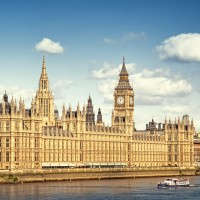
The issues were two of the key demands made by the Housing, Communities and Local Government Committee of MPs in July.
However, these were rejected by secretary of state for Housing, Communities and Local Government (MHCLG) Robert Jenrick who presented the response to the Building regulations and fire safety: consultation response and connected issues report.
The comments centred on 10 actions recommended by the committee:
1. Pick up the pace of reform.
The government said its consultation Building a Safer Future: proposals for reform of the building safety regulatory system closed on 31st July and it hopes the outcome will be “a proactive system where building owners and developers take responsibility for ensuring that residents are safe.”
2. Require installation of sprinkler systems in new and existing high-rise and high-risk buildings.
The government has completed a call for evidence in a technical review of Approved Document B fire safety guidance. Its consultation is looking at whether rules should be changed to require sprinklers in a wider range of buildings including reducing the height threshold for new high-rises from 30 to 18 metres. The consultation closes on 28th November 2019. “Decisions will be made based on evidence,” the government said.
3. Set a short, realistic deadline for all buildings with dangerous cladding to be fixed, with sanctions for building owners that fail to comply.
Government expects remediation in the social sector to be complete by 2019 and private sector owners have until end of 2019 to apply to the government for funds to support remediation actions. Government will name and shame individuals and businesses that don’t act and MHCLG will support local authorities to take robust enforcement action.
4. Clarify the scope of the government’s fund for remediation works, including that it should cover ancillary costs such as surveys; clarify that building owners/freeholders should retain full responsibility for remediation; and confirm that the fund will cover replacing combustible insulation.
The government said that the fund covers works related to replacing unsafe aluminium composite material (ACM) cladding. Application guidance for private sector remediation funds was published in July and is open for submissions from private sector owners.
5. Establish the cost of replacing all unsafe cladding and provide central funding for it.
The government responded that non-ACM cladding systems will not be part of the fund.
6. Publish the findings of the government’s non-ACM cladding research programme.
The government commented that in partnership with the Independent Expert Advisory Panel and the Building Research Establishment (BRE), its has issued a number of guidance notes on this topic over the past two years.
BRE is completing a research programme looking at the burning behaviour of non-ACM cladding materials and “the full picture will be provided following detailed analysis,” the secretary of state said.
The government said it would respond as part of its wider consultation programme to four further core recommendations, which are:
7. Urgently provide public health services to Grenfell Tower fire survivors and the local community;
8. Be ambitious in scope with the new regime;
9. Clarify that the building owner/ freeholder is the accountable person and where a freehold has a complex ownership structure its a board member of the freehold company; and
10. Provide new funding where public bodies are to take on new responsibilities.
















